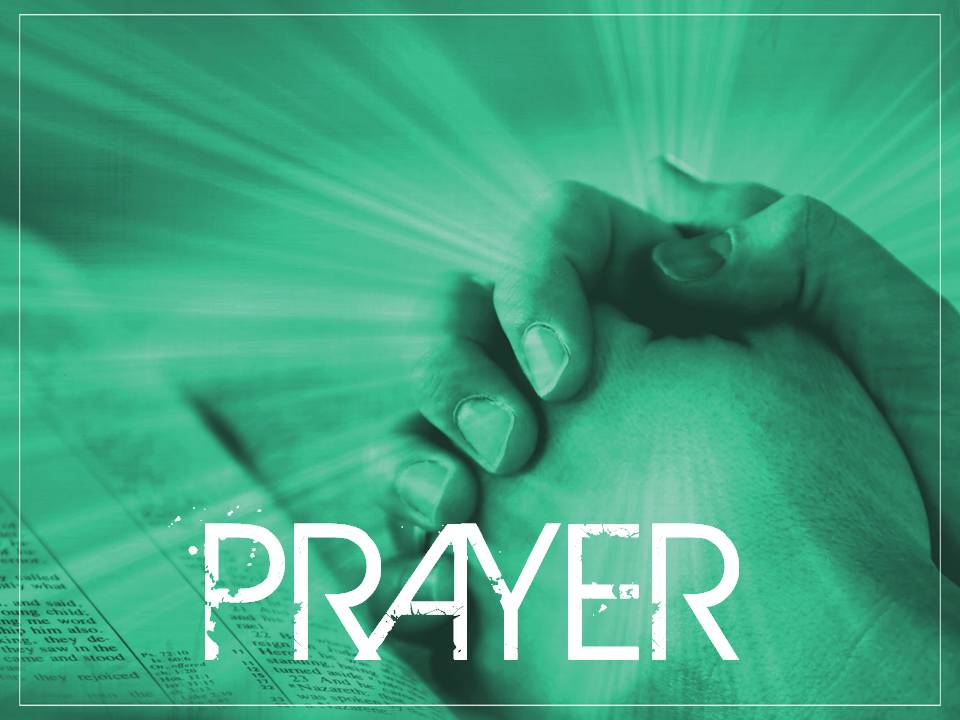Podcast: Play in new window | Download
Subscribe: Email | TuneIn | RSS | More
 Unfortunately, we are again talking about another school shooting. What will it take to stop these shootings? Some have claimed that thoughts and prayers are unimportant. While for some, the notion indicates a desire for political action to be taken. However, for others, such a statement implies that prayer is worthless. Are thoughts and prayers important? On this episode, Brian describes how real change comes by fervent prayer leading one to actions of love through an examination of Romans 12:9-21. Are thoughts and prayers important? Find out today.
Unfortunately, we are again talking about another school shooting. What will it take to stop these shootings? Some have claimed that thoughts and prayers are unimportant. While for some, the notion indicates a desire for political action to be taken. However, for others, such a statement implies that prayer is worthless. Are thoughts and prayers important? On this episode, Brian describes how real change comes by fervent prayer leading one to actions of love through an examination of Romans 12:9-21. Are thoughts and prayers important? Find out today.
About the Host
 Brian G. Chilton is the founder of BellatorChristi.com and is the host of The Bellator Christi Podcast. He received his Master of Divinity in Theology from Liberty University (with high distinction); his Bachelor of Science in Religious Studies and Philosophy from Gardner-Webb University (with honors); and received certification in Christian Apologetics from Biola University. Brian is currently in the Ph.D. program in Theology and Apologetics at Liberty University. Brian is a full member of the International Society of Christian Apologetics and the Christian Apologetics Alliance. Brian has been in the ministry for over 15 years and serves as the pastor of Huntsville Baptist Church in Yadkinville, North Carolina.
Brian G. Chilton is the founder of BellatorChristi.com and is the host of The Bellator Christi Podcast. He received his Master of Divinity in Theology from Liberty University (with high distinction); his Bachelor of Science in Religious Studies and Philosophy from Gardner-Webb University (with honors); and received certification in Christian Apologetics from Biola University. Brian is currently in the Ph.D. program in Theology and Apologetics at Liberty University. Brian is a full member of the International Society of Christian Apologetics and the Christian Apologetics Alliance. Brian has been in the ministry for over 15 years and serves as the pastor of Huntsville Baptist Church in Yadkinville, North Carolina.
About the Podcast
 The Bellator Christi Podcast is a bi-weekly production of BellatorChristi.com and is protected under Creative Commons copyright. All rights reserved. The interview and commentary episode of The Bellator Christi Podcast is published each Sunday, with a weekly sermon published later in the week (normally on Thursdays). The theme song is “Crucified,” written by John and Michaela Lemonis, performed by Crosby Lane, and produced by Mansion Entertainment (https://crosbylane.com). The views expressed on this podcast may not represent those of Bellator Christi or its affiliates. Be sure to subscribe to BellatorChristi.com to receive all the articles and podcasts in your inbox for free. Also, be sure to check out The Bellator Christi Podcast on iTunes, TuneIn, Stitcher and Google Play to subscribe for free.
The Bellator Christi Podcast is a bi-weekly production of BellatorChristi.com and is protected under Creative Commons copyright. All rights reserved. The interview and commentary episode of The Bellator Christi Podcast is published each Sunday, with a weekly sermon published later in the week (normally on Thursdays). The theme song is “Crucified,” written by John and Michaela Lemonis, performed by Crosby Lane, and produced by Mansion Entertainment (https://crosbylane.com). The views expressed on this podcast may not represent those of Bellator Christi or its affiliates. Be sure to subscribe to BellatorChristi.com to receive all the articles and podcasts in your inbox for free. Also, be sure to check out The Bellator Christi Podcast on iTunes, TuneIn, Stitcher and Google Play to subscribe for free.
© 2018. BellatorChristi.com.






“Are Thoughts and Prayers Enough?”
You can’t be serious. They’re worse than nothing. At least if you do nothing, you’re a little anxious knowing that you’re not. When you give thoughts and prayers you do precisely the same amount of good, but you also drain away that anxiety. You can now go back to watching TV or whatever you were doing, having a clear conscience that you actually did something.
Action is enough–encourage policy or legal change. Donate money to a relevant cause. But don’t pretend that praying is contributing to the solution. It never has in the past.
Bob,
You are making two false assumptions. On the one hand, if you believe in God, then yes, prayer is critical. Prayer calls upon help from God to comfort the afflicted and to move upon those who need help.
On the other hand, you assume that prayer does nothing to move a person to action. That is simply false. Just as it was Christians who through prayer were moved to abolish slavery, so prayer moves Christians to do great things. People want to take immediate action. But, if that action is undirected towards doing something good and beneficial, the action may cause more harm than good.
Brian: Thanks for the reply.
“if you believe in God, then yes, prayer is critical. Prayer calls upon help from God to comfort the afflicted and to move upon those who need help.”
The only benefit that I can see from prayer is the comfort it gives to the person who prays. I can see that value, but any meditative practice can be valuable to reduce anxiety or help clarify options. But you’re saying that prayer actually causes God to take action? That seems quite odd. Surely God already knows of the issue. And he knows the best course of action, but he’s going to change that based on your appeal? That seems odd.
But more to the point, is there good evidence that prayer actually works to make the requested result likelier? I mean, evidence that a non-Christian would accept? The large 2006 STEP (Templeton) study on prayer seemed to make clear that it doesn’t.
“you assume that prayer does nothing to move a person to action.”
I can see this. I can imagine someone who, after mulling the issue through prayer, decides to take a concrete action. I’m simply saying that the reverse is also true, that someone will be shocked by a news story, then spend 10 seconds in silent prayer, and then conclude that they’ve taken care of that and move on, with the shock dissipated. And why shouldn’t it be? What’s the point in my giving $20 to a charity when I can instead nudge the Creator of the Universe to take action? According to Christianity’s claims for prayer, my donation would be trivial, almost pathetic, by comparison.
Bob,
You bring up some good questions that I may treat more fully in a future article or podcast, because there’s more to discuss than what I could cover in a brief reply. In regards to “scientific prayer studies”, there are so many variables that could alter such a study that one wonders whether such a study could be valid, on the one hand. Concerning the STEP study, could those who knew that strangers were praying for them have had more anxiety after their procedure leading to negative results? Could those who thought that no one was praying for them have had loved ones praying for them from afar? There are too many variables to consider. Another aspect to such studies is the realization that God is not a genie-in-a-bottle. God answers according to his will. That’s the way Christians are to pray (see Jesus’s Model Prayer for example). On the other hand, ironically, other studies on prayer have shown the tremendous benefits of prayer, such as the 2007 study conducted by Arizona State University.
Perhaps a better treatment on the effectiveness of prayer is shown in Craig Keener’s massive two-volume work entitled Miracles: The Credibility of the NT Accounts. Keener provides numerous examples of how prayer has benefited individuals in amazing ways. I, for one, have seen miracles come by God’s intervention. I have seen a woman with a torn optic nerve miraculously receive sight once again. I have met individuals who faced life threatening medical complications who miraculously came through because of prayer.
You mentioned God’s sovereign knowledge in relation to prayer. This is an issue that is much deeper than what I could give in a simple response. As a Molinist, I believe God knows the potentiality of all things (natural knowledge), the certainty of things that will happen (free knowledge), and the factuals and counter-factuals of a free creature’s response (middle knowledge). Therefore, does prayer move God? I think so. But, prayer is more than just asking and receiving. It is about relationship with the Creator. So, God moves according to the prayer of faith. But, God operates knowing that the person praying would ask. Would he have acted if the person had not asked (counter-factual)? I don’t know. Maybe God’s response to prayer is a way of showing his reality to those who would receive his grace? Nevertheless, Scripture indicates the efficacy of prayer and the sovereignty of God. They both work together.
Lastly, you make an either-or comparison between prayer and works. I think that’s fair because some people do pray a simple prayer and move on as if nothing has happened. But, that is not what should happen. Prayer should move a person to action. Isaiah says that the believer should “Learn to do what is good. Pursue justice. Correct the oppressor. Defend the rights of the fatherless. Plead the widow’s cause” (Isa. 1:17, CSB). This is not a call to passivity, but a call to pursue what is good and true.
Go back and listen to the podcast. I make a case from Paul’s exhortation in Romans that we must not be “conquered by evil, but conquer evil with good” (Rom. 12:21, CSB). I do think we need to begin to have serious conversations pertaining to the access of semi-automatic rifles to the common person. I am a supporter of the 2nd amendment, but I do think we need to have more restrictions for assault rifles. We also need to work to correct the mental health system in this country. Honestly Bob, I think that is why we need to build bridges instead of tearing them down. We need to work to find a solution together instead of tearing down a person’s faith in order to get something accomplished. That is my primary beef with the argument that “thoughts and prayers are not enough.”
Blessings to you as we seek solutions together,
Brian
You mentioned Keener’s book on miracles. I’m completely unimpressed. Do miracles happen? Then why waste time writing a book about it to encourage the faith of people who are already Christian? Why not convince *science* that miracles happen?
“We need to work to find a solution together instead of tearing down a person’s faith in order to get something accomplished.”
I like your attitude about building bridges, but faith becomes the problem when it gets in the way of a solution.
Bob,
Unfortunately, you have shown two things in your response which greatly saddens me. 1) You are unwilling to listen to any evidence that contradicts your own religion/philosophy (i.e., your atheism or agnosticism, whichever the case may be). You have completely disregarded a wealth of research due to your own bias. 2) You are unwilling to compromise with those whom you disagree to find a solution. Your unwillingness to seek unity nullifies any attempt you have to find a solution. Your problem is not with Christians. Your problem is with God…period. I hope that you find “seek the LORD while he may be found; call to him while he is near” (Isa. 55:6, CSB). As Americans, I fear that we will never find any solutions unless we lessen our hostilities to truly be willing to listen to what others are saying. This requires both the faithful and faithless to listen to one another, both Republicans and Democrats. We are not there. Hopefully, one day we will be.
Blessings,
Brian